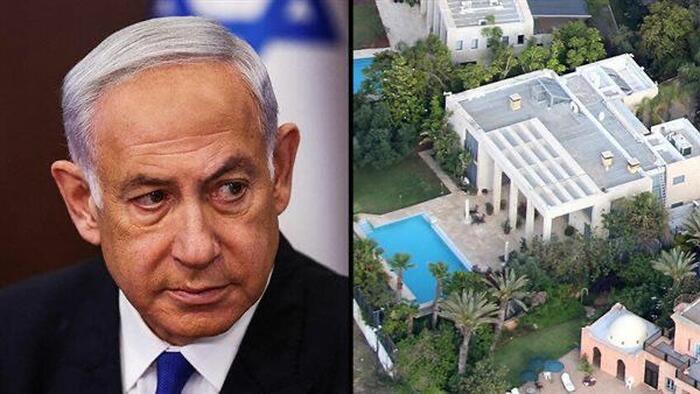On Saturday morning, Israeli Prime Minister Benjamin Netanyahu accused Iran of an assassination attempt against him after a drone, reportedly sent by Hezbollah, targeted his private residence in Caesarea, outside Tel Aviv. Netanyahu, through an English statement on social media, described the attack as a “grave mistake” and marked it as the first instance during the ongoing war where a direct threat to his person was realized. Disturbingly, although he, his wife, and family were not at home during the attack, the event raised substantial concerns about Israel’s air defense systems, which failed to intercept the drone despite the Israeli military’s awareness of its trajectory from Lebanon.
The drone, possibly identified as an Iranian Shahed 101, traveled approximately 70 kilometers into Israeli territory, prompting alarms in certain regions, though no sirens activated in the vicinity of the attack. The Israel Defense Forces (IDF) stated that while three drones launched from Lebanon were involved in the incident, only one struck near Netanyahu’s home, provoking questions regarding the effectiveness of Israel’s air defense mechanisms. Eyewitness reports and captured footage indicated that an Israeli military helicopter was in the area, purportedly tracking the drone, leading to further scrutiny over the decision-making processes that failed to avert the strike.
Netanyahu’s office confirmed the drone hit the vicinity of his residence but did not provide specifics on the damage incurred. Media outlets, including Israel’s Channel 12, emphasized the significance of the attack, interpreting it as an open declaration from Iran and its proxies of intent to escalate hostilities against Israel. The attack comes amidst increasing tensions in the region, particularly following a mid-October missile strike on Israel attributed to Iranian forces, which resulted in considerable casualties and infrastructure damage.
In the aftermath of the drone strike, Netanyahu released a robust message vowing that Israel would not be deterred by such threats. He characterized the attack as part of a larger battle against Iran and its proxies, asserting that the country’s military campaign would continue resolutely. The PM pointed to significant military operations in Rafah that had resulted in the death of Hamas leader Yahya Sinwar as indicative of Israel’s commitment to confronting its adversaries.
By insisting that Israel “is going to win this war,” Netanyahu’s comments reflected an urgency to reinforce national unity and resolve in what he described as a struggle against terrorism and regional hostilities. The potential for a broader conflict looms over the region, with the Israeli leadership expected to consider retaliatory actions against Iran in response to the drone attack and previous missile strikes.
As regional tensions continue to escalate, the drone strike targeting Netanyahu’s residence serves as both a symbolic and strategic act of aggression by Hezbollah and Iran, pushing the conflict towards an unpredictable and possibly violent future. Israel’s military strategies, technological responses, and political leadership will likely be under intense scrutiny as the nation grapples with growing threats from its adversaries, setting the stage for potential military confrontations that could extend well beyond its borders. This incident highlights the intricate and fragile balance of power in the region, potentially altering the trajectory of Israel-Iran dynamics and the wider geopolitical landscape in the Middle East.

